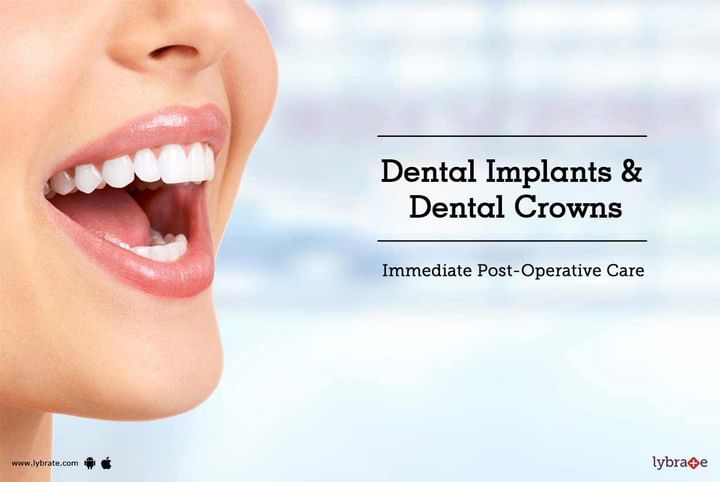Dental Implants & Dental Crowns - Immediate Post-operative Care
When a tooth is lost, the dental implant or dental crown would be the closest replacement both in terms of chewing efficiency and facial appearance.
Unlike a denture, the implant replaces not just the crown structure but also the root portion. This ensures that the tooth is replaced as it was prior to the loss. When clinically done properly and cared for appropriately, the dental implant can last for decades.
Why Is a Dental Crown Needed?
A dental crown may be needed in the following situations:
- To protect a weak tooth (for instance, from decay) from breaking or to hold together parts of a cracked tooth
- To restore an already broken tooth or a tooth that has been severely worn down
- To cover and support a tooth with a large filling when there isn't a lot of tooth left
- To hold a dental bridge in place
- To cover misshapened or severely discolored teeth
- To make a cosmetic modification
And, if you have gone for dental implants, keep the following in-check to maintain a good oral health after you the implant is done-
- Until the effect of the anesthetic wears off, do not eat or limit to drinking something cold. Avoid anything hot or spicy for the first day.
- Start using the mouthwash from the evening of surgery and continue through the entire week. It should be held in the surgical area for at least a minute, repeated 3 times daily, for the first week.
- The other teeth should be brushed from the evening of the surgery. The surgical area should not be touched for the first 3 to 4 days. After that, depending on the pain tolerance, gently brush this area with a soft toothbrush.
- Add a teaspoon of salt to a glass of warm water, keep it in the surgical site for a soothing effect. This can be repeated as many times as possible, after each meal or snack.
- Follow a soft diet and do not let the food go into the surgical site area.
- Do not disturb the surgical site with either tongue or finger.
- Smoking should be completely avoided until the wound completely heals. The negative pressure created during can dislodge the clot and lead to delayed healing and even complications like dry socket.
- Expect some swelling and/or bruising in the cheek and mouth area, which will increase for the first 2 to 3 days and then gradually subside. Swelling can be managed with ice packs or a cold towel that is applied for 10 minutes with half-hour breaks. From day 2 onwards, gentle heat can be used.
- Similarly, expect pain for the first couple of days which can be controlled with pain-killers. Take the first pain-killer before the anesthetic effect wears off.
- Continued pain and swelling after the first 4 to 5 days should prompt a visit to the dentist, as it might be an indication of underlying dental infection.
- If you have dentures over the surgical implant site, try using them to the least extent possible for the first week.
- Complete the entire antibiotics course after the surgery.
Appropriate post-operative care goes a long way in ensure the implant gets absorbed and lasts a lifetime. If you wish to discuss about any specific problem, you can consult a doctor and ask a free question.



+1.svg)
